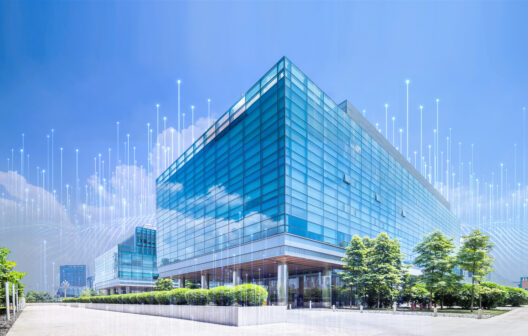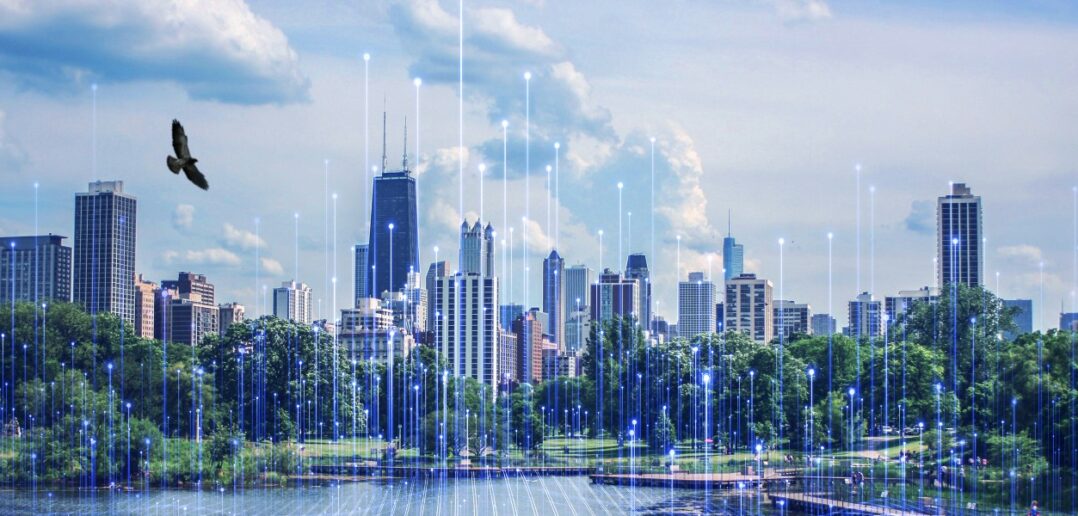The current energy crisis, the conflict in Ukraine and global warming are changing our way of life, says Agustin Garcia del Castillo, Sustainability Director, Continental Europe at Johnson Controls. It is essential to adapt to these new challenges not only in our personal lives but also in the business world.
With buildings being responsible for approximately 40% of emissions and up to 60% in urban areas, it has become increasingly critical to undertake decarbonization efforts through the operation and refurbishment of buildings, as well as the reduction of their carbon footprint.

Agustin Garcia del Castillo, Sustainability Director, Continental Europe at Johnson Controls © Johnson Controls
In 2023, sustainability becomes a key priority for all businesses
Although sustainability and decarbonisation have been on the agendas of companies for a decade, it was not until recently that they became a top priority, says Garcia del Castillo. As such, sustainability has become a crucial concern for all companies looking to plan for the long term.
For the last 5 years, companies have considered sustainability and decarbonisation as strategic and key, setting clear and ambitious targets for both net zero and circular economy. Especially in Europe, where a whole series of grants and incentives have been made available to both governments and private companies to achieve these goals.
Personally, I doubt that all the targets can be achieved, says Garcia del Castillo. Many programs have been launched to accelerate decarbonisation, but they are not ambitious enough or their timeframe is running out, with almost all of them targeting 2025-2030.
There are several reasons: cost pressures and the need to increase the core business, lack of knowledge of available technologies, barriers and limitations on ROI or payback and lack of realistic targets.

OpenBlue, Johnson Controls
The energy crisis is accelerating the process
The current crisis in Ukraine has led to a major energy crisis, impacting many commodity markets, as well as businesses.
The war in Ukraine and the subsequent energy crisis has only accelerated the process in which many companies were immersed, from an energy point of view: the electrification of their energy resources, says Garcia dela Castillo.
Either by generating their own energy with renewable energies, or by trying to reduce exposure to natural gas through heat production with heat pumps, the increase in gas prices has accelerated the process of companies moving away from this energy source.
And where this is not possible, companies have prioritized the optimization and efficiency of gas use through heat optimization and re-use, cogeneration and process efficiency. And of course,
with digitalisation: having the right information in real time and having more transparency in the energy usage through digital tools make businesses much more efficient.
The European Green Deal Initiative
In response to the current impact of global carbon emissions, numerous countries have taken action, such as Paris, which has set a goal of retrofitting all homes by 2050. Furthermore, the city has proposed the development of new national renovation labels that incorporate a carbon criterion.
This development is part of the European Green Deal initiative. The objective at European level is clear: to achieve climate neutrality by 2050.
However, the biggest challenge is how to get support and incentives to companies, because all the financing initiatives originated in the Green Deal have to be transposed into the local legislation of each country, and this is where each country has different criteria, priorities and levels of maturity.
In general, two of the main focuses are on the renovation of buildings to make them more efficient and investment in environmentally friendly technologies. Both are part of the essence of the Green Deal. However, each country sets its priorities and how they structure its subsidies and incentives.
In Spain, for example, the focus will be on the large-scale development of renewable energies, the renovation of buildings and the development of the circular economy and waste management, particularly in the automotive industry. Italy is committed to innovation, both in industrial processes and energy efficiency, in small and medium-sized enterprises.

OpenBlue, Johnson Controls
A need for technology and innovations for more sustainable buildings
The real estate and construction sector is a very traditional sector, not very permeable to changes and trends. Advancements in terms of technology, take a long time to be implemented. Precisely, it is technology that helps the development of these innovations in the field, and almost all of them are focused on sustainability, energy savings, increased comfort and user experience and also greater efficiency in operations.
As an example, Johnson Controls has developed a portfolio of digital solutions that can help supporting companies to make buildings more sustainable and efficient.
Sustainability ranges from air quality, improvement of the occupant experience to energy efficiency and ultimately decarbonisation. It affects not only the buildings, but also the users.
The real estate sector needs innovative approaches and solutions to achieve its decarbonization and energy efficiency goals, while optimizing building performance, says Garcia del Castillo. Innovation can play an important role, both in the design of the solution and in the subsequent services and continuous optimisation of the building or plant.
Sustainability in any building or plant encompasses many disciplines, so Johnson Controls’ approach is truly holistic, says Garcia del Castillo. Sustainability concerns not only aspects of decarbonisation, but also the efficiency of resources – be it energy, space or time – and the well- being and satisfaction of the building user.
For each company or sector, the issues are different. For Food & Beverage companies, the main issue is the efficient use of heat and cooling. For industrial companies, the rational use of energy, electrification in heat generation and process optimisation are key. And for building customers, safety, comfort and user experience count as KPIs when measuring sustainability performance.
In each case, Johnson Controls can contribute with a holistic consultative approach and a related value proposition. Our distinctiveness lies in our ability to provide all sustainability services in a comprehensive and integrated manner, with a single point of contact. By combining multiple disciplines and solutions, we make it easier for clients to achieve their objectives, says Garcia del Castillo.
Technology is thus positioned as an additional facilitator of the environmental transition of the whole building industry by contributing to the emergence of intelligent and responsible buildings, serving the comfort and well-being of occupants.
The overall sustainability objectives must remain ambitious, and it is now up to everyone to accelerate their efforts to achieve them. Let’s remain optimistic!

OpenBlue, Johnson Controls
About Agustin Garcia del Castillo
Agustin Garcia del Castillo is an architect, Member of the Royal Institute of Chartered Surveyors (RICS – the most prestigious international association of real estate professionals promoting the development and management of land, real estate, buildings and infrastructure), Sustainability and Real Estate expert with more than 15 years of experience. He has recently started a new role as Sustainability Director at Johnson Controls.



